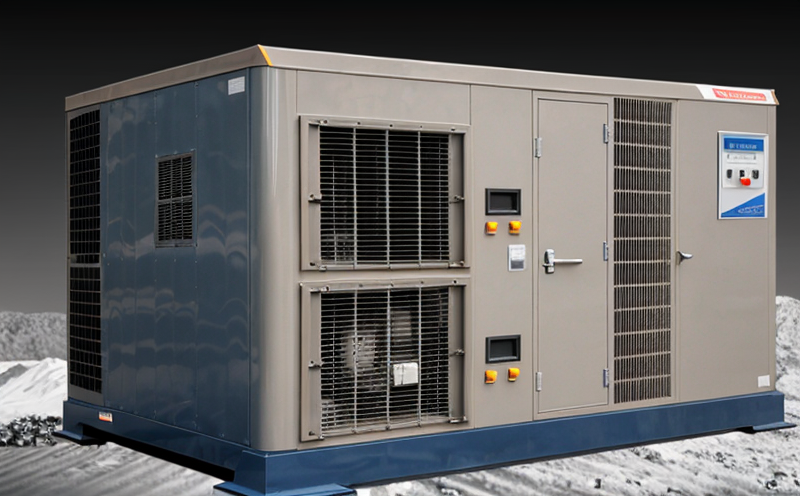ASTM D5470 Thermal Resistance Measurement Testing
The ASTM D5470 thermal resistance measurement testing is a critical procedure used to assess the ability of electronic components, particularly semiconductors and microchips, to withstand temperature variations without compromising their operational integrity. This test measures the thermal resistance between two specified points on an electrical component or assembly under defined environmental conditions.
This service plays a pivotal role in ensuring that semiconductor devices meet stringent reliability requirements. The ASTM D5470 protocol involves subjecting the components to controlled thermal stress, typically involving temperature cycling from low to high extremes. This process helps identify potential weaknesses or defects within the component's structure before it reaches end-users.
The testing procedure requires precise control over environmental conditions such as temperature and humidity levels, ensuring that all specimens are subjected uniformly. The primary objective is to simulate real-world operating environments accurately, thereby providing reliable data on how well each product performs under stress.
A critical aspect of this service lies in the detailed analysis phase following the completion of thermal cycling experiments. During this stage, technicians carefully examine any signs indicative of failure or degradation within the tested units. Additionally, they measure electrical parameters like resistance changes and observe physical characteristics such as cracks or warping that could indicate reduced performance.
For accurate results, it's essential to follow internationally recognized standards meticulously. Compliance with ASTM D5470 ensures consistency across different laboratories worldwide, enhancing confidence in the testing outcomes. By adhering strictly to these guidelines, we guarantee high-quality assessments capable of meeting stringent quality control standards.
The importance of this service cannot be overstated given its direct impact on product reliability and longevity. In sectors reliant on advanced electronics technology—such as automotive manufacturing or aerospace engineering—it's crucial to know precisely how much thermal stress your components can endure before failure occurs. Such insights are invaluable for optimizing design iterations, improving material selection processes, and ultimately reducing maintenance costs associated with premature failures.
Furthermore, successful completion of ASTM D5470 testing demonstrates adherence to industry best practices, which is increasingly becoming a prerequisite for regulatory compliance in many jurisdictions around the globe. This adds significant value not only from an operational perspective but also in terms of brand reputation and market competitiveness.
Quality and Reliability Assurance
- Uniformity: Ensuring consistent application of thermal stress across all samples processed ensures accurate measurement results.
- Controlled Environment: Maintaining precise temperature and humidity levels throughout the testing process guarantees reproducible outcomes.
- Data Analysis: Rigorous examination post-testing allows for early identification of any issues, leading to timely corrective actions if necessary.
Customer Impact and Satisfaction
By offering comprehensive ASTM D5470 thermal resistance measurement testing services, we significantly enhance our customers' ability to produce reliable electronic products. Our rigorous adherence to international standards ensures that every test conducted adheres to the highest quality benchmarks.
This service directly benefits end-users by reducing risks associated with component failures due to improper handling or unexpected environmental conditions during use. For manufacturers and developers, it provides valuable insights into product performance under various stress scenarios, enabling informed decisions regarding design improvements and material selections.
Our commitment to excellence translates into increased customer satisfaction through timely delivery of accurate test results and proactive communication about any findings that may influence ongoing projects or future iterations.
International Acceptance and Recognition
The ASTM D5470 thermal resistance measurement testing has gained widespread acceptance within the semiconductor industry. Its adoption by numerous reputable organizations worldwide attests to its credibility as a reliable method for evaluating electronic components' ability to withstand temperature changes.
Many leading companies in sectors like automotive and aerospace rely on this standard because it provides a standardized approach that can be replicated consistently across different locations and facilities. This uniformity fosters trust among stakeholders involved at every stage of product development—from initial design conception through final production processes.
The global recognition accorded to ASTM D5470 further underscores its significance in maintaining high standards of quality assurance globally. Laboratories accredited by organizations such as ISO 17025 recognize this service as part of their suite of offerings aimed at supporting industries dependent on robust electronic components.





